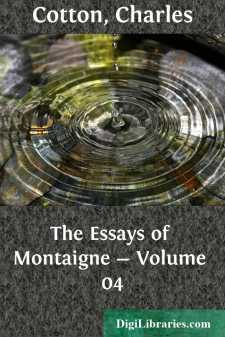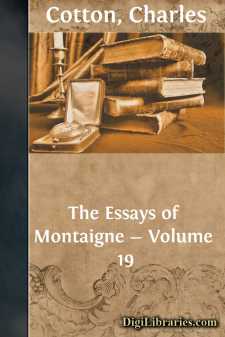Categories
- Antiques & Collectibles 13
- Architecture 36
- Art 48
- Bibles 22
- Biography & Autobiography 813
- Body, Mind & Spirit 142
- Business & Economics 28
- Children's Books 13
- Children's Fiction 10
- Computers 4
- Cooking 94
- Crafts & Hobbies 4
- Drama 346
- Education 46
- Family & Relationships 57
- Fiction 11828
- Games 19
- Gardening 17
- Health & Fitness 34
- History 1377
- House & Home 1
- Humor 147
- Juvenile Fiction 1873
- Juvenile Nonfiction 202
- Language Arts & Disciplines 88
- Law 16
- Literary Collections 686
- Literary Criticism 179
- Mathematics 13
- Medical 41
- Music 40
- Nature 179
- Non-Classifiable 1768
- Performing Arts 7
- Periodicals 1453
- Philosophy 64
- Photography 2
- Poetry 896
- Political Science 203
- Psychology 42
- Reference 154
- Religion 513
- Science 126
- Self-Help 84
- Social Science 81
- Sports & Recreation 34
- Study Aids 3
- Technology & Engineering 59
- Transportation 23
- Travel 463
- True Crime 29
Sort by:
by:
Charles Cotton
DEFENCE OF SENECA AND PLUTARCH The familiarity I have with these two authors, and the assistance they have lent to my age and to my book, wholly compiled of what I have borrowed from them, oblige me to stand up for their honour. As to Seneca, amongst a million of little pamphlets that those of the so-called reformed religion disperse abroad for the defence of their cause (and which sometimes proceed...
more...
by:
Charles Cotton
He seems to me to have had a right and true apprehension of the power of custom, who first invented the story of a country-woman who, having accustomed herself to play with and carry a young calf in her arms, and daily continuing to do so as it grew up, obtained this by custom, that, when grown to be a great ox, she was still able to bear it. For, in truth, custom is a violent and treacherous...
more...
by:
Charles Cotton
Having considered the proceedings of a painter that serves me, I had a mind to imitate his way. He chooses the fairest place and middle of any wall, or panel, wherein to draw a picture, which he finishes with his utmost care and art, and the vacuity about it he fills with grotesques, which are odd fantastic figures without any grace but what they derive from their variety, and the extravagance of their...
more...
by:
Charles Cotton
They who write the life of Augustus Caesar,—[Suetonius, Life of Augustus, c. 25.]—observe this in his military discipline, that he was wonderfully liberal of gifts to men of merit, but that as to the true recompenses of honour he was as sparing; yet he himself had been gratified by his uncle with all the military recompenses before he had ever been in the field. It was a pretty invention, and...
more...
by:
Charles Cotton
It is very easy to verify, that great authors, when they write of causes, not only make use of those they think to be the true causes, but also of those they believe not to be so, provided they have in them some beauty and invention: they speak true and usefully enough, if it be ingeniously. We cannot make ourselves sure of the supreme cause, and therefore crowd a great many together, to see if it may...
more...
by:
Charles Cotton
I never yet saw that father, but let his son be never so decrepit or deformed, would not, notwithstanding, own him: not, nevertheless, if he were not totally besotted, and blinded with his paternal affection, that he did not well enough discern his defects; but that with all defaults he was still his. Just so, I see better than any other, that all I write here are but the idle reveries of a man that...
more...
by:
Charles Cotton
Few things, in comparison of what commonly affect other men, move, or, to say better, possess me: for 'tis but reason they should concern a man, provided they do not possess him. I am very solicitous, both by study and argument, to enlarge this privilege of insensibility, which is in me naturally raised to a pretty degree, so that consequently I espouse and am very much moved with very few things....
more...
by:
Charles Cotton
There is, peradventure, no more manifest vanity than to write of it so vainly. That which divinity has so divinely expressed to us—["Vanity of vanities: all is vanity."—Eccles., i. 2.]—ought to be carefully and continually meditated by men of understanding. Who does not see that I have taken a road, in which, incessantly and without labour, I shall proceed so long as there shall be ink...
more...
by:
Charles Cotton
There is no desire more natural than that of knowledge. We try all ways that can lead us to it; where reason is wanting, we therein employ experience, "Per varios usus artem experientia fecit, Exemplo monstrante viam," ["By various trials experience created art, example shewing the way."—Manilius, i. 59.]...
more...










